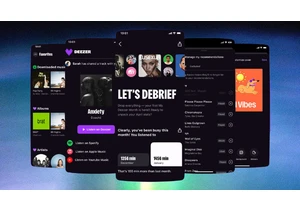Nvidia announced Monday that it will produce its artificial intelligence supercomputers in the United States for the first time.
The tech giant said it has commissioned more than one million square feet of manufacturing space to build and test its specialized Blackwell chips in Arizona and AI supercomputers in Texas—part of an investment the company said will produce up to half a trillion dollars of AI infrastructure in the next four years.
“The engines of the world’s AI infrastructure are being built in the United States for the first time,” Nvidia founder Jensen Huang said in a statement. “Adding American manufacturing helps us better meet the incredible and growing demand for AI chips and supercomputers, strengthens our supply chain and boosts our resiliency.”
Nvidia’s announcement comes as the Trump administration has said that tariff exemptions on electronics like smartphones and laptops are only a temporary reprieve until officials develop a new tariff approach specific to the semiconductor industry.
White House officials, including President Donald Trump himself, spent Sunday downplaying the significance of exemptions that lessen but won’t eliminate the effect of U.S. tariffs on imports of popular consumer devices and their key components.
“They’re exempt from the reciprocal tariffs but they’re included in the semiconductor tariffs, which are coming in probably a month or two,” U.S. Commerce Secretary Howard Lutnick told ABC’s This Week on Sunday.
Nvidia said in a post on its website that it has started Blackwell production at Taiwan Semiconductor Manufacturing Co. chip plants in Phoenix. The Santa Clara, California-based chip company is also building supercomputer manufacturing plants in Texas—with Foxconn in Houston and Wistron in Dallas.
Nvidia’s AI supercomputers will serve as the engines for AI factories, “a new type of data center created for the sole purpose of processing artificial intelligence,” the company said, adding that manufacturing in the U.S. will create “hundreds of thousands of jobs and drive trillions of dollars in economic security over the coming decades.”
Mass production at both plants is expected to ramp up in the next 12–15 months, Nvidia said. The company also plans on partnering with Taiwan-based company SPIL and Amkor for “packaging and testing operations” in Arizona.
In a statement Monday, the White House called Nvidia’s move “the Trump Effect in action.”
Trump “has made U.S.-based chips manufacturing a priority as part of his relentless pursuit of an American manufacturing renaissance, and it’s paying off—with trillions of dollars in new investments secured in the tech sector alone,” the White House said.
Earlier this year, Trump announced a joint venture investing up to $500 billion for infrastructure tied to artificial intelligence by a new partnership formed by OpenAI, Oracle and SoftBank. The new entity, Stargate, was tasked with building out data centers and the electricity generation needed for the further development of the fast-evolving AI in Texas, according to the White House.
The initial investment is expected to be $100 billion and could reach five times that sum.
—Sarah Parvini, AP Technology Writer
Melden Sie sich an, um einen Kommentar hinzuzufügen
Andere Beiträge in dieser Gruppe

If real Easter eggs aren’t your thing this weekend, you may find hunting for digital ones more enjoyable. And there are some cool ones to find at your fingertips, provided you have an iPhone or Ma

With music streaming, users have gotten used to being at the mercy of algorithms. But French music streamer Deezer is making it easier for its subscribers to make the algorithm work for them.

Trying to get from point A to point B? If only it were that simple! With any manner of travel these days, you’ve got options: planes, trains, buses, ferries, and beyond. And finding the best

When Twitter cofounder and Medium founder Evan “Ev” Williams was planning his 50th birthday party, he didn’t know who to invite. Having spent more of his life building and scaling tech

If you thought you’d heard the last of the viral “Apple” dance, think again. The TikToker behind it is now suing Roblox over its unauthorized use.
Last year, during the height of Brat su

A Wall Street Journal report this week gave an extensive look into how Elon Musk, the

Netflix fared better than analysts anticipated during the first thr
